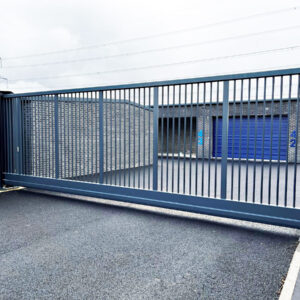That’s a retaining wall. It’s more than just a structure. It adds strength, style, and value to your home. But here’s the truth—building a retaining wall is not a simple job. It takes skill, planning, and experience. That’s why hiring the right retaining wall contractors makes all the difference.
In this guide, we’ll walk through how to choose the best contractor for your project. We’ll cover what to look for, the questions you should ask, and how to make sure you get the right team for the job.
Why Retaining Walls Matter
A retaining wall isn’t just a pile of stones or blocks. It serves a real purpose. If your property has slopes, uneven ground, or areas prone to erosion, a retaining wall keeps the soil stable. It prevents flooding and adds usable space.
On top of that, a well-built retaining wall boosts curb appeal. It can turn a plain yard into something modern and stylish. For many homeowners, it’s both practical and beautiful. That’s why choosing skilled retaining wall contractors is so important.
Look for Experience
The first thing to check is experience. Retaining wall contractors with years of work behind them understand the soil, drainage, and materials needed. They know what works and what doesn’t.
Ask how long they’ve been building walls. Look at their past projects. Photos, reviews, and references tell you a lot. An experienced contractor won’t just build a wall—they’ll make sure it lasts for decades.
Check Their Skills and Services
Not all contractors are the same. Some focus only on basic stone walls. Others can design custom walls with unique shapes, colors, and finishes.
Think about what you want. Do you need a small garden wall or a large structural wall? Do you want it to blend with your landscape design? Good retaining wall contractors should offer both function and style.
Ask About Materials
The strength of a retaining wall comes from its materials. Common options include concrete blocks, natural stone, brick, and timber. Each has its pros and cons.
Concrete blocks are durable and cost-effective.
Natural stone looks timeless but can cost more.
Brick offers a clean, classic look.
Timber is cheaper but not as long-lasting.
Your contractor should guide you through the choices. The right one will explain what works best for your soil, slope, and budget.
Focus on Drainage
A wall without proper drainage is a wall waiting to fail. Water is one of the biggest threats to retaining walls. If it builds up behind the wall, pressure can cause cracks or even collapse.
Professional retaining wall contractors know how to set up drainage systems. They use gravel, pipes, and proper backfill to keep water away. When talking to contractors, ask them about drainage. If they can’t give a clear answer, they may not be the right choice.
Read Reviews and Testimonials
In today’s world, reviews matter. Before hiring anyone, check what past customers say. Look on Google, local directories, or even social media.
Good retaining wall contractors will have positive reviews about quality, timing, and communication. If you see repeated complaints about poor service or walls falling apart, take that as a warning sign.
Ask About Licenses and Insurance
This step is about protecting yourself. A reliable contractor should have the right licenses and insurance. If something goes wrong, you don’t want to be the one paying for damages.
Ask for proof. A professional contractor won’t hesitate to show it. This step gives you peace of mind and makes sure the job is legal and safe.
Compare Quotes, But Don’t Go Cheap
Everyone wants to save money. But when it comes to retaining walls, the cheapest quote isn’t always the best. A low price can mean cheap materials or rushed work.
Get at least three quotes from different retaining wall contractors. Compare them carefully. Look at what’s included—materials, labor, warranties, and clean-up. Sometimes, paying a little more upfront saves you money in repairs later.
Check Their Communication
A good contractor should listen to you. They should answer your questions clearly and explain the process. If they avoid details or rush you into decisions, that’s a red flag.
Building a retaining wall is a partnership. Clear communication helps you get what you want and avoids surprises during the project.
Look for Warranties
Quality contractors often provide warranties. That shows they stand by their work. Ask about guarantees for both materials and labor. A strong warranty means confidence in their skills and gives you protection if problems come up.
Trust Your Gut
Sometimes, the decision comes down to trust. After you’ve done your research, spoken with contractors, and reviewed your options, go with the one who feels right. If someone gives you confidence and answers your questions well, that’s often the best choice.
Benefits of Hiring the Right Retaining Wall Contractors
Strong, lasting walls that don’t collapse under pressure.
Better curb appeal with walls that match your landscape.
Saved money in the long run with fewer repairs.
Peace of mind knowing professionals handled everything.
Hiring the right team takes effort, but it’s worth it. Your retaining wall will look better, last longer, and keep your property safe.
Final Thoughts
A retaining wall is more than a yard feature—it’s a structure that protects your home and adds beauty to your space. Choosing the right retaining wall contractors makes all the difference.
Remember the steps: check experience, materials, drainage, reviews, licenses, and communication. Compare quotes wisely, look for warranties, and trust your gut.
When you follow these steps, you’ll find contractors who deliver both strength and style. That means a retaining wall you can enjoy for years.
FAQs
Q. How much does it cost to hire retaining wall contractors?
A. The cost depends on size, materials, and design. Simple walls can be affordable, while larger, custom walls cost more. Always get quotes before deciding.
Q. How long does it take to build a retaining wall?
A. Most small projects take a few days. Larger or more complex walls may take a couple of weeks. Weather and site conditions can also affect timing.
Q. What materials are best for retaining walls?
A. Concrete blocks and natural stone are popular because they’re durable. The best choice depends on your soil, slope, and budget.
Q. Can I build a retaining wall myself?
A. You can try for small garden walls. But for larger, load-bearing walls, it’s safer to hire professionals. They have the tools and knowledge to build walls that last.
Q. How do I know if a contractor is reliable?
A. Look at reviews, past projects, licenses, and insurance. A reliable contractor will also communicate clearly and provide a written contract.




